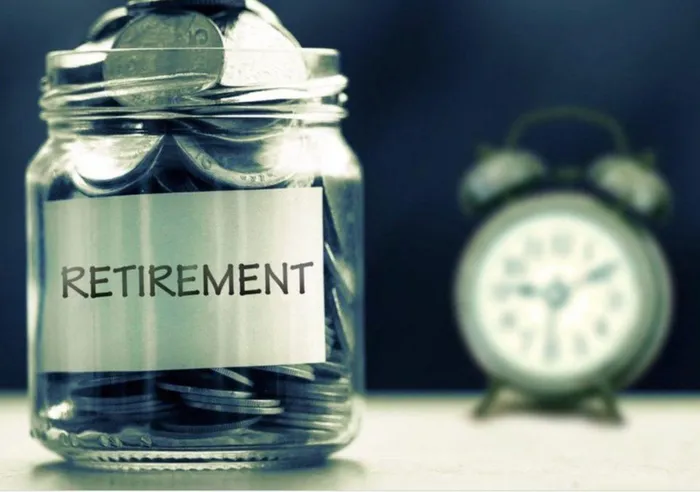Words on wealth: Should you withdraw from your savings pot to reinvest?

The two-pot system will impact all working people contributing to retirement funds. File photo.
There has been extensive coverage in mainstream and digital media on the two-pot retirement system that comes into effect on September 1 and will impact all working people contributing to retirement funds.
Amid the coverage, I was surprised to come across a YouTube video of a financial adviser putting forward a case for withdrawing from your savings pot, taking the tax cut and reinvesting the money in discretionary investments.
The YouTuber emphasises that she is not giving advice in the legal sense, just suggesting something financially savvy viewers could consider. She also makes it clear that, unless you need it for an emergency, you should not withdraw for consumption purposes.
Certain arguments can be made for not using a retirement fund to save for retirement:
- In a discretionary investment, your money is always accessible. At present, in a retirement fund access is restricted to when you resign from a job or retire. From September 1, you will have access to your “retirement pot” only when you retire. At that point, you can take a third of your savings as a lump sum, of which R550 000 is tax-free. The remaining two-thirds must go into a pension product such as a living annuity or life annuity.
- Your money is not subject to Regulation 28 of the Pension Funds Act, which limits investment in certain asset classes and restricts offshore exposure to 45% of the portfolio.
- In a retirement fund, because your contributions are tax-deductible, when you retire you pay tax on your income from living or life annuity. This does not apply in a discretionary investment made with after-tax savings. (But that doesn’t mean such an investment is tax-free, as we shall see below.)
The YouTuber argues that being free from Regulation 28, you will be able to invest more aggressively offshore, which will give you a higher return than in a retirement fund. She gives an example of someone withdrawing R25 000, of which tax of R7 775 is deducted, leaving R17 225. A 15% annual net return in an offshore fund, the YouTuber argues, would give you R26 197 after three years, and you would have recouped your loss to tax.
There are a few major problems with the argument.
First, the YouTuber does not take into account that if left in the fund, the money would also grow and compound. Taking a realistic in-fund net annual rate of 10%, the R25 000 would have grown to R33 275 after three years, leaving you about R7 000 short.
The second, more serious problem with the YouTuber’s case is the proposed 15% return in a more aggressive investment. Yes, the JSE has performed miserably in recent years and yes, offshore equities have performed beyond expectations. Over three years to the end of May, the FTSE/JSE All Share Index returned 8.6% a year, on average, while the MSCI World Index returned 19.1% in rand terms. However, it would be foolish to bank on the high disparity in returns, despite rand weakness.
Wynand Gouws, a certified financial planner from Gradidge Mahura Investments, has explored funding one’s retirement using discretionary after-tax savings. In an article “Reducing tax before and after retirement”, covered in Personal Finance at the beginning of 2023, he argued that in certain circumstances, this might be a viable option within the context of a well-structured financial plan.
However, when I approached him for his views on the YouTube video, he said that due to the high tax cost, withdrawing from the savings pot should really be for emergencies only.
“We would certainly not encourage people to divest from their retirement savings due to the extremely high expense,” he said.
Gouws said the high return in the video example was excessive. “From the long-term historical returns, we know that equity returns generated in investing in an international portfolio and a South African portfolio are similar, not a 4% to 5% difference as is implied in the example. We also know that a few years back, South African equity returns were ahead of international returns,” he said.
He said there were arguments for and against Regulation 28.
“Most investors should have – and their risk profile requires – a diversified exposure in accordance with Regulation 28. Very few investors can tolerate the volatility of a 100% equity investment.
“We also know that only a small part of JSE earnings are dependent on SA Inc (shares of South African companies focused on the local market, as opposed to more international companies). This means that even in a retirement fund, most investors' portfolios have significantly more exposure to offshore earnings than the 45% implied by Regulation 28,” Gouws said.
Finally, to my mind, the YouTuber handles the tax issues too glibly. A few points:
- Your contributions to a retirement fund are made in the period of your life when you are paying high income tax. The savings you make in tax could be further boosting your savings.
- On retirement, you can take R550 000 tax-free.
- Few people earn as a pension what they have earned as a salary, so are likely to enjoy a lower tax rate. Plus there are the concessions for over-65s, including higher rebates and more generous medical credits.
- Discretionary investments come with their own set of taxes that retirement funds and post-retirement annuities don’t have: you’re taxed on interest and dividends throughout the term of your investment and on capital gains when you cash in, which could be substantial after 30-odd years.
* Hesse is the former editor of Personal Finance.
PERSONAL FINANCE